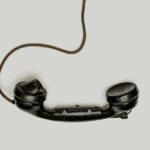NOT ANOTHER TV DAD
★ ★ ★ ★
RAISED ANGRY

Photo by Helloquence
By CL Bledsoe
When I was growing up, it seemed like all of the adults I knew were angry all the time. They would rant about things they considered to be unfair with such malice. Even as a child, I could see that many of these things were exaggerated, at best, or that the adults were being hypocritical. Someone who worked for money under the table (because he was on disability and wasn’t supposed to be working) might complain about seeing someone on welfare buy steak, for example. Churchgoers would judge those around them vehemently, referencing a Bible they either hadn’t read or didn’t remember very well.
I couldn’t understand it. They all seemed so unhappy. I was unhappy, but a lot of that was because I didn’t have choices. I was stuck in my situation. They could do whatever they wanted. But they didn’t. They seemed to prefer to complain. What I didn’t understand at the time was that their anger was an addiction.
It’s hard not to think of this anger as temper tantrums. It’s a luxury, after all, to be able to get angry without consequence, to think that anyone would care about your anger. Partly, I think, these folks were angry because they had this idea of how the world was supposed to be, that there were certain rules the world was supposed to follow—rules that would put them at the top, coincidentally—and the world wasn’t following those rules. The sad truth these people refused to realize is that they were simply gullible. Someone had sold them a perspective, and it was deeply flawed. They were told that if they worked hard, they’d get ahead. They looked around and saw they weren’t getting as far ahead as they’d like, so they turned to those they were ahead of and tried to widen that gap however they could. Maybe realizing all that would be too difficult; how could they subvert this system, after all?
When I was younger, I was much more frustrated and much angrier than I am now, partly because I lacked agency. I was taught to be angry, whether consciously or not. I was raised primarily around a bunch of ex-military men, many of them war veterans, many of them alcoholic and miserable. Most of the women I knew were bitter and angry about being stuck in their lives (sometimes with these men). Their reactions to most things involved some level of anger. These men would punch walls or shoot things when they were upset. If I asked a question, I was snapped at, insulted, mocked. Anger was how they interacted with the world.
Anger is a tricky thing. It’s deceptively appealing. Anger cuts through the white noise of distractions and obstacles so a person can get something difficult done—much like how alcohol dampens inhibitions. But anger can also become a habit and be used all the time. These folks I knew were angry all the time. It wasn’t just their perceived unfair treatment by the world setting them off, it was every little thing. I learned this, and even though I didn’t agree with the moral posturing some of them used, I adopted the tone. I used anger to get myself past certain difficulties in my life. It seemed like a good thing. It was a survival technique which worked in those situations, but in the long term was ultimately damaging.
When my first poetry collection came out, I flew to Boston to give a reading. The person who introduced me to the audience talked about how angry my poems were. It surprised me. Of course, they were angry, but they were also funny (I hoped) and all sorts of other things. It threw off my whole reading to have my poems reduced to “angry.” In fact, anger was something I had addressed. The final poem in the book—the title poem, “Anthem”—says, about anger, that it “…can motivate/but it burns out like a bad lightbulb…until you learn…to make something/from yourself like light.”
Writing is ultimately how I dealt with this anger. Or, more specifically, editing is. I would write something born of righteous indignation and then, later, try to turn it into something worthwhile, which usually meant editing out the anger. That anger, on the page, so often translated to a kind of sullenness. It was embarrassing to read. Similarly, as I put more thought and time into examining my own motivations and reactions, I edited those, as well.
I hadn’t thought about anger for a long time until my daughter saw me get frustrated at a video game we were playing. I snapped at something in the game, and a few days later, I heard her snap at something that was frustrating her. We talked about it. We worked on some strategies to deal with frustration. It’s a start.
The thing is, it’s okay to be angry, but letting that fester does no one any good. I think the biggest difference for me, now, is that whenever I do get angry, I feel embarrassed by it, as opposed to considering it righteous indignation. This is more about the expression of that anger—what I do with it—than feeling it, to begin with. The world is a profoundly stupid place in innumerable ways. We all know this. We’re all dealing with it together.

CL Bledsoe is the author of sixteen books, most recently the poetry collection Trashcans in Love and the flash fiction collection Ray’s Sea World. His poems, stories, and nonfiction have been published in hundreds of journals and anthologies including New York Quarterly, The Cimarron Review, Contrary, Story South, and The Arkansas Review. He’s been nominated for the Pushcart Prize fifteen times, Best of the Net three times, and has had two stories selected as Notable Stories of the Year by Story South‘s Million Writers Award. Originally from a rice and catfish farm in the Mississippi River Delta area of Arkansas, Bledsoe lives with his daughter in northern Virginia. He blogs at NotAnotherTVDad.blogspot.com

DEAR READER
At The Wild Word we are proud to present some of the best online writing around, as well as being a platform for new and emerging writers and artists.
If you have read the work in The Wild Word and like what we do, please put something in our tip jar.
THANK YOU FOR YOUR SUPPORT!























